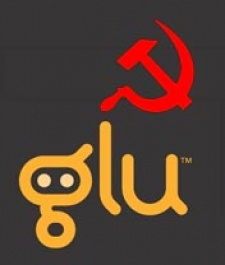In this troubled financial climate, western businesses continue to benefit from cheaper production methods found in other countries.
The mobile games industry is no different.
Glu Mobile has a network of studios spread across the globe. One of the newest is their 60-strong Moscow studio, which was obtained as part of the Superscape buyout in early 2008.
The studio has hit the ground running with quality iPhone titles like Cops & Robbers and Deer Hunter 3D, which has earned it the right to handle some prestigious properties, including Call of Duty and Tony Hawk on mobile.
It also has plenty of original IP in the pipeline, including the fun, snack-sized iPhone tube-dasher Alley Gator (which features the ability to record and apply your own sound effects) and the charming Java platformer 99 Ninjas ("its more Sonic than Mario").
I went along to Glus rather less exotic London offices to speak with the Moscow studios director of production, Alex Hannay, to find out about the studio, iPhone development and the Russian gaming market.
Pocket Gamer: Could you tell us about the history of Glu Moscow?
Alex Hannay: It used to be Superscape Moscow. And before that it was an independent Russian games company called 3D Wireless Games.
At that stage, back in 2003/2004, it focused almost exclusively on 3D content for BREW and Java, using a proprietary toolset from Superscape called Swerve, which was all about cramming 3D graphics into tiny file sizes, mainly for use on mobile for Over The Air delivery.
3D Wireless Games worked with Superscape a lot and became very adept at using its technology. Ultimately Superscape bought it, and it became an internal studio. When Glu Mobile acquired Superscape in early 2008 that included the studio in Moscow.
Has it been an easy transition?
It took us quite a long time to get our 2D capabilities up to the same level as the 3D. I can (now) say very confidently that it really is an exceptional studio in that it can hit anything from a 64KB Java build up to 100MBs of content for iPhone and all shades in between.
What are the benefits of operating in Russia?
Its a little bit cheaper than running a studio in America. Not to the order of magnitude that you get in China or Romania, but I think the quality of the personnel that you get in Russia is significantly higher and the education process is fantastic. The universities chuck out a huge number of very highly qualified people each year.
What are the main strengths of the workforce?
Programming is something that you find very easily there. Art is pretty easy to find now. The big challenge still is finding game designers and such roles as marketing where you need to understand the whole picture.
Whats the wider Russian gaming market like?
The game-playing culture in Russia is based around the PC - there aren't many consoles. There's not an enormous amount of DS or PSP penetration either.
And how about mobile gaming?
Its enormously popular. Its the place in the world that Ive seen the most people playing mobile games. When you go into a carriage on Moscow Metro there is always at least one person playing a mobile game. I dont see that in London. I dont see that in America.
You remember when the first N-Gage came out, the side-talking Taco? The Moscow Metros the only place in the world I saw people playing the Taco.
Speaking of N-Gage, are there any plans to develop for it?
N-Gage is something were looking at. Its a great platform, and it's a great company, but at the moment theres not a great deal of momentum.
I used to work for Nokia, so I feel sorry for it. It put its money where its mouth was. Many companies talk and talk and hope to get some love without spending anything. Nokia has invested a significant amount of money in the N-Gage platform.
Then Apple has come along and almost effortlessly taken over. Apple have been able to transform this space faster and more substantially than Nokia, which has been trying for ten years.
Do you feel people have blown iPhone's success out of proportion?
Yeah, theres an absolute ton of life left in Java, and there are a lot more people playing the games. But the iPhone is important, it is the future. A few people are making money out of the iPhone. Were doing okay, Gameloft is doing fantastically well, if you believe what theyre saying.
But youve got to contrast that with the price points - I mean the price points are murder. And the competition is immense. How many thousands of games are there on the App Store now?
Do you think there's a future for more iPhone expensive games?
I hope things settle down into two strata. Clearly these 99 cent games are great everybody loves Harbour Master, Flight Control, Paper Toss and Pocket God, but I hope there's also space for the likes of Super Monkey Ball and Assassins Creed as well.
Can you see the iPhone 3GS acting as a facilitator for premium games?
Its almost there now, I think. Weve noticed something as rich and as beautiful as Deer Hunter 3D is pulling in more 3GS users compared to other games where were getting more of an even spread across the first and second generation iPhone.
Well see what happens with the 3GS. Typically in mobile when a handset is launched you see a great spike in content for that handset because everybody is looking to push the limits of the processor and the graphics capabilities. We also need to see what it means for entertainment.
Thanks to Alex for his comments.
Glu Moscow's Alex Hannay talks iPhone, N-Gage, and the burgeoning Russian scene
Why more publishers should consider defecting





















